FOR IMMEDIATE RELEASE:
 SALT LAKE CITY, Utah – For Tom Stanley, a slightly overweight lost soul, life has lost its luster. Rather than face the daily grind of life working at his Chevrolet dealership, he’d rather sleep his days away. Just when Tom’s malaise seems like it can’t get any worse, a chance meeting with fellow car dealership owner Daniel Santos changes everything. Tall, tan, and fit, Daniel is renowned for his success and decides to take Tom under his wing. Under Daniel’s guidance, not only does Tom train to run his first marathon but also learns what it takes to turn his business into a success!
SALT LAKE CITY, Utah – For Tom Stanley, a slightly overweight lost soul, life has lost its luster. Rather than face the daily grind of life working at his Chevrolet dealership, he’d rather sleep his days away. Just when Tom’s malaise seems like it can’t get any worse, a chance meeting with fellow car dealership owner Daniel Santos changes everything. Tall, tan, and fit, Daniel is renowned for his success and decides to take Tom under his wing. Under Daniel’s guidance, not only does Tom train to run his first marathon but also learns what it takes to turn his business into a success!
From the mind of Utah business leader and success coach David R. Ibarra, “Stop Drifting” (March 9, 2021, 3L Publishing) is a story about how one man finds his way to success, both in business and in life, by following key strategies that the author credits for his own successful career. Inspired by the Brain Model principles of Napoleon Hill, David Ibarra’s “Stop Drifting” uses a compelling narrative to teach readers not only how to identify their purpose in life, but to apply that purpose to their business, create new training processes, implement new business strategies, and how to “Pivot to Positive” and overcome the debilitating influence of doubt and uncertainty. “Stop Drifting” is a story of great imagination that offers readers new strategies to spark inspiration and new ways to master their mindset and achieve their dreams. Whether you’re looking for inspiration in your business or personal life, with “Stop Drifting,” David Ibarra wants to wake readers up to exciting new ways of thinking, being, and living.
“Stop Drifting: Become the Switch Master of Your Own Thought and Pivot to Positive”
David R. Ibarra | March 9, 2021 | 3L Publishing| Business, Self-Help
Hardcover | 978-1-7339150-8-3 | $21.99
About David R. Ibarra
 Author of “Stop Drifting: Become the Switch Master of Your Own Thought and Pivot to Positive,” David R. Ibarra is a leadership consultant and successful entrepreneur in Salt Lake City who blazed his own trail to success after being raised in the Utah foster care system.
Author of “Stop Drifting: Become the Switch Master of Your Own Thought and Pivot to Positive,” David R. Ibarra is a leadership consultant and successful entrepreneur in Salt Lake City who blazed his own trail to success after being raised in the Utah foster care system.
At 28 years old he started his first business, beginning a career that spans the restaurant, automotive, and leadership consulting industries. David wrote “Stop Drifting” as a chapter within his “Life Purpose” journey. He is dedicated to working with employed adults who often drift through life unsatisfied. His leadership coaching focuses on developing talent and teaching individuals how to become goal setters and achieve a positive work experience, which creates the freedom to find success in other roles including family, faith, community, and health.
Humble Beginnings
David’s story began as the son of a Mexican immigrant father and a rural Utah mother. When his parents divorced, 2-year-old David and his 3-year-old brother Mickey were placed into foster care until they reconnected with their father as teenagers. At eighteen years of age, David started his career in the hospitality industry as a dishwasher. Ten years later, he became the youngest franchise owner of Farrell’s Ice Cream Parlour Restaurant – a division of the Marriott Corporation.
Business Leader
David held several positions for the Marriott Corporation, and was the general manager of a large automobile dealership. These experiences, from entry level to management, prepared him to form the Ibarra companies, which include an insurance firm, brokerage firm, learning institute, and performance software companies. David is a well-known public speaker, trainer, and success coach who is invited to deliver keynote addresses all across the United States. David is also the recipient of an Honorary Doctorate of Humane Letters from Salt Lake Community College.
Giving Back
David has participated in a variety of community and leadership positions, including an appointment by President Clinton to the U.S. Air Force Academy Board of Visitors. David has also served as a board member for the Salt Lake International Airport, Utah Private Industry Council, Central Region Council of the Utah Department of Workforce Services, Latino Leaders Network, and Utah Hispanic Chamber of Commerce. Much of David’s personal charitable contributions are directed to the Ibarra Foundation, which David started to make college possible for Latino students by providing full tuition scholarships. Since 2004, over 100 students have received a college education with the Foundation’s help. For over 30 years, David has been committed to “Time Tithing” – weekly mentoring sessions for people, from all walks of life, who bring their business ideas and concerns to him for advice.
In an interview, David R. Ibarra can discuss:
- His humble beginnings growing up in Utah’s foster care system and his stunning personal transformation to become a well-known public speaker and business coach.
- The ambitions behind writing “Stop Drifting,” helping adults struggling with a lack of passion at work and helping people achieve their dreams.
- His mission to introduce everyone to their other self, the self who believes they can do anything and igniting the love for life that they once had.
- The concepts introduced in his book – drifting, the Brain Model, Dr. Doubt, how to Become the Switch Master of Your Own Thought® and Pivot to Positive®.
- How David’s first mentor shaped the rest of his life, and how he has given back to his community – David created the Ibarra Foundation to make college possible for Latino students by providing full tuition scholarships. Since 2004, 100+ students have received a college education with the foundation’s help. For 30+ years, David has held weekly mentoring sessions for people, from all walks of life, who bring their business ideas and concerns to him for advice.
An Interview with David R. Ibarra
1. “Stop Drifting” centers on two main characters, Tom Stanley (a drifter, unmotivated lost soul, unsuccessful car dealer) and Daniel Santos (a non-drifter, a goal setter and scorekeeper, a successful entrepreneur and car dealer). Were you like Tom at one point in your life? Are you more like Daniel now? How so?
Yes, like many people, my life has been a winding road, not a straight path to the achievement of success. My journey started by spending 14 years of my childhood in foster care, wondering if I really mattered. I became a very angry young man and a poor student who was often in trouble. I struggled and wondered if success was meant for me, much like Tom Stanley.
At just 18 years old, my dishwasher job at Farrell’s Ice Cream Parlour Restaurant turned out to be one of the most significant experiences of my life. I met Mr. Robert E. Farrell, who became my first business coach and mentor. He challenged me to study “Think and Grow Rich” by Dr. Napoleon Hill and become a disciple of its Principles of Success. Mr. Farrell helped me dream big, find my purpose, gain the burning desire for success, believe it, and then achieve it. Just 10 years later, I opened my first business as the youngest Farrell’s franchisee. I have grown to be very successful in all aspects of life while never forgetting the debt that I owe to Mr. Farrell, donating my time to employed individuals who need help finding their goals and purpose.
There is no doubt that I started out life as Tom Stanley and have become Daniel Santos.
2. You were raised in foster care for about 14 years of your life. How did that experience shape you into the person you are today, personally and professionally?
My story began as the son of a Mexican immigrant father and a rural Utah white mother. By the time I was 1 year old, the predictable happened, my parents divorced. My father went into the army and my 18-year-old mother relinquished custody of my brother, Mickey, and I to the Utah foster care system. For the first 14 years of our lives, we were without traditional parents. As kids we wondered about who we were and why we were alone. I often questioned if I really mattered. While my brother, Mickey, fit in and did well, I withdrew, became shy, troubled and angry. I resented being in foster care and wanted to live with my dad, who remained in contact with us as we grew up. At 14, I begged my dad to let me live with him. He granted my wish on one condition, Mickey and I had to stay together. We had never been apart and frankly Mickey, even though he is only 11 months older than me, was more like a parent to me than a brother. Mickey agreed to my dad’s condition and that became a major crossroad in our lives.
Foster care taught me to become a problem solver and stoked a burning desire to become a “have” rather than a “have not.” Best of all I gained a love for my brother that would be hard for any other siblings to match. I also learned important lessons from my father – how to work hard, play by the rules, never give up and always give back. What a lucky break the foster care experience was for my brother and me.
3. “Stop Drifting” isn’t your run-of-the-mill book about business leadership. It’s written creatively, colorfully and thoughtfully as a work of narrative fiction (but it obviously mirrors your own life!). What can you tell us about your approach to writing this book?
While “Stop Drifting” is a story of fiction, it is based in fact. During my 40 years as a performance coach, I have found that most people are drifting – wondering if they really matter. Once they learn the mystical power of the Brian Model, the magic occurs and positive thoughts replace negative ones and success becomes contagious. “Stop Drifting” uses all the most common drifting examples that I saw while coaching at the many companies who hired me to help them change their Talent Mix. I divided these common examples into groups and then developed fictional characters based on these groupings. I believe sharing my coaching lessons in a story will help teach the principles of “Think and Grow Rich” in a fun learning experience.
4. Your book is called “Stop Drifting: Become the Switch Master of Your Own Thought and Pivot to Positive.” Can you break the title down for us?
I have found that 90% of people are drifting – they have no goal or life purpose. Drifters are victims of a negative-state-of-mind. They have no idea how their mind works and thinks. I developed the Brain Model to make it easier to understand how failure and success occur. Both happen based on how individuals seed their subconscious mind. Individuals who focus on positive thoughts, will create a positive state of mind which leads to thinking and believing things that you never dreamed were possible. By staying in a positive state of mind, we allow ourselves to Pivot to Positive® and rid ourselves of Dr. Doubt. Once a person understands that their state of mind is a choice and controlling their state of mind can be learned, they are on the path to becoming the Switch Master of Your Own Thought®. Most people have the ability to learn these principles quickly and are able to put them into practice almost instantly. During my coaching I coined the phrases – Become the Switch Master of Your Own Thought® and Pivot to Positive®. These two phrases help to keep the Brain Model visible in our students’ mind which allow them to gain control of their thoughts and emotions. This process became a game changer in their journey to success.
5. Sometimes people drift without even realizing it. What are some signs they can look out for?
Those who are drifting often find themselves dreading the day ahead of them. They don’t like their jobs, they are generally unhappy and they are dissatisfied with themselves and those around them. The easiest way to identify a drifter is to simply ask the person to articulate what they want in the way of goal or purpose. A person that cannot answer the simple “want question” is drifting.
6. In your book, you mention overcoming Dr. Doubt – what does that mean?
Learning the mystical power of becoming the Switch Master of Your Own Thought® is the key to gaining the power to achieve what you want. When negative emotion enters your thought, Dr. Doubt starts to whisper to you. His goal is to lock your brain and introduce you to one or more of the seven fears. Like the fear of not having enough money, criticism, loss of health, loss of love, old age, loss of free time, or even the fear of death itself. That allows Dr. Doubt to introduce you to his Negative Nuthouse and once inside it is difficult to get out. You begin to suffocate in unhappiness, wondering if success was meant for you, and that nothing in your life is going to change. “Stop Drifting” teaches the reader how to get out of a negative state of mind and how to live in a positive state of mind where good things happen.
7. What is the Brain Model?
Learning to become the Switch Master of Your Own Thought® and Pivot to Positive® to control your state-of-mind starts with understanding how your brain works.
- 80% of your brain is your subconscious. Your subconscious has only one job and that is to do whatever your thoughts tell it to do.
- 15% of your brain is your conscious. Your conscious is your conductor, your driver; it seeds your thought into your subconscious, telling it what to do, and your subconscious finds a way to make it a reality – good or bad.
- On top of your consciousness is the 5% of your brain that is your imagination. Now that’s where all the action happens.
- There are two kinds of imagination. One is your positive state of mind – You believe. And the other is your negative state of mind – You disbelieve. “Stop Drifting” teaches one how to maintain a positive state of mind.
8. When people are suffocating in unhappiness at work, how does that translate to other parts of their lives (family, faith, community, health, etc.)?
If a person does not conquer work by being successful, then work thoughts never leave their mind and they feel fear and stress constantly. Therefore, they are never truly present, or stress free in their family, faith, community and sound health roles. Success at work creates better parents, partners, and neighbors, which create a better world.
9. Does the work related to personal transformation ever end, or does it just evolve?
They are connected – once you create a positive mindset, like attracts like and all the roles gain strength until you and your loved ones are the role models to your circle of influence.
10. For many people, 2020 was a year punctuated by loss, grief and overwhelming negativity. How can people recover and rebound after such a tough time?
When encountering adversity there will always be a seed of an equivalent benefit that presents itself. We must learn to look for it and be ready to take advantage of the opportunity. At the beginning of the 2020 pandemic, most of us became “shelter in” isolated with a great deal of idle time. I quickly found my equivalent benefit – I had TIME. I wrote down everything I said I would do if I only had the time. Writing “Stop Drifting” was the result of having the gift of time. In short, my work team and I took advantage of the gift of time and put actions into motion as quickly as possible. When you’re busy in actions, you gain belief and confidence.
A former award-winning journalist with national exposure, Marissa now oversees the day-to-day operation of the Books Forward author branding and book marketing firm, along with our indie publishing support sister company Books Fluent.
Born and bred in Louisiana, currently living in New Orleans, she has lived and developed a strong base for our company and authors in Chicago and Nashville. Her journalism work has appeared in USA Today, National Geographic and other major publications. She is now interviewed by media on best practices for book marketing.
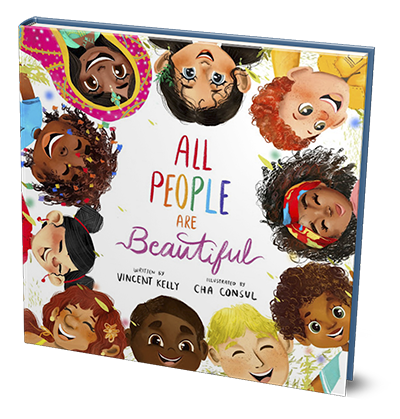 The book also includes additional activities children can take part in, inspiring them to use their imaginations to craft characters and flags of their own. And there’s an additional free fun activity resource that can be utilized in the classroom or at home. With translations in seven languages — and more to come — “All People are Beautiful” is an excellent addition to every early reader’s bookshelf.
The book also includes additional activities children can take part in, inspiring them to use their imaginations to craft characters and flags of their own. And there’s an additional free fun activity resource that can be utilized in the classroom or at home. With translations in seven languages — and more to come — “All People are Beautiful” is an excellent addition to every early reader’s bookshelf.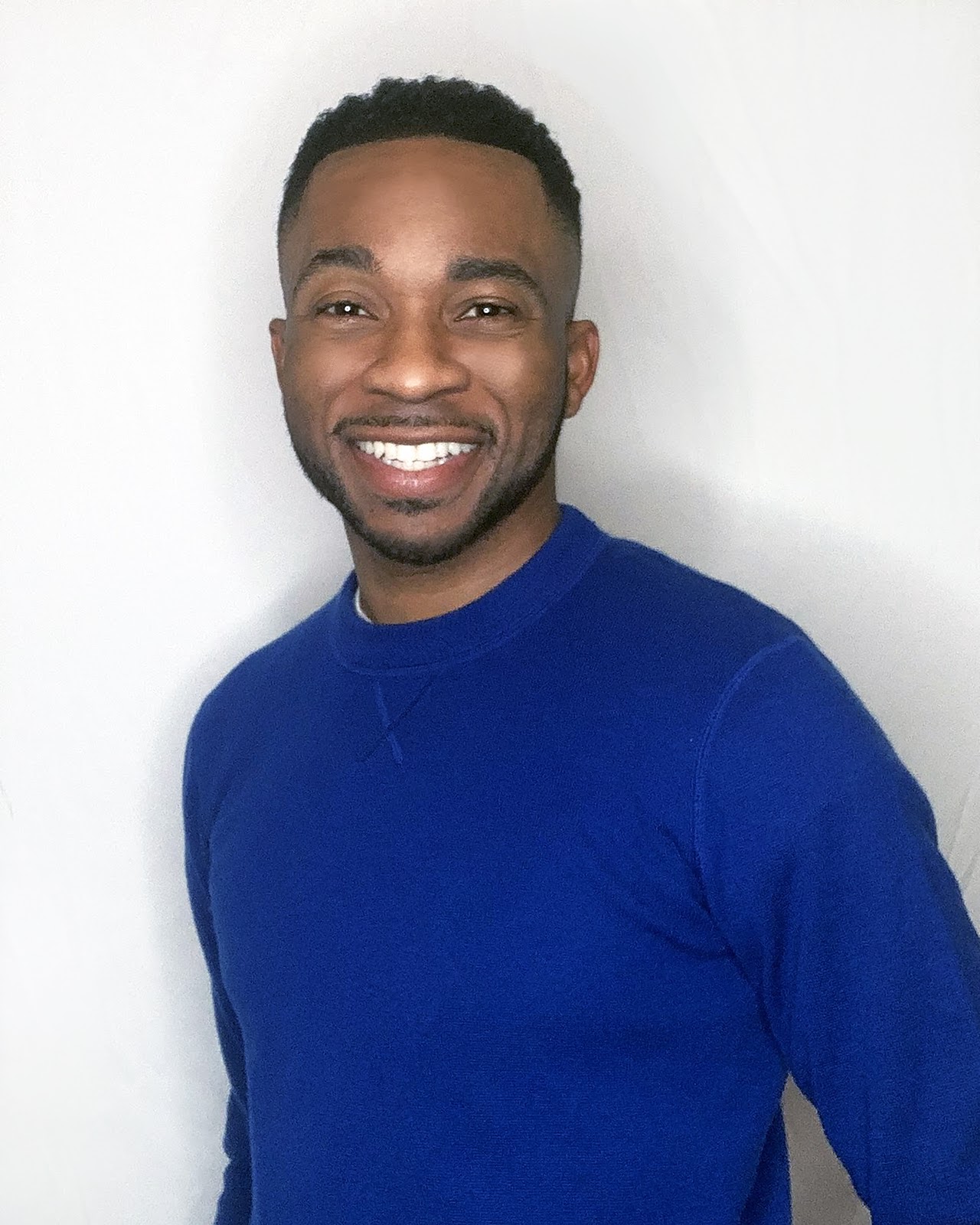 Vincent Kelly is a human resources leader, husband and father. He is based in the entertaining city of Nashville, Tennessee with his wife and two sons. He loves writing stories that are filled with fun, color, life lessons, and that focus on promoting positive behavior and early learning in children. “The Awesome Things I Love” is his debut children’s book. There are more works to follow as he seeks to pen books that children all over the world will grow to love. For more information, visit his website, https://vincentmkelly.com/.
Vincent Kelly is a human resources leader, husband and father. He is based in the entertaining city of Nashville, Tennessee with his wife and two sons. He loves writing stories that are filled with fun, color, life lessons, and that focus on promoting positive behavior and early learning in children. “The Awesome Things I Love” is his debut children’s book. There are more works to follow as he seeks to pen books that children all over the world will grow to love. For more information, visit his website, https://vincentmkelly.com/.
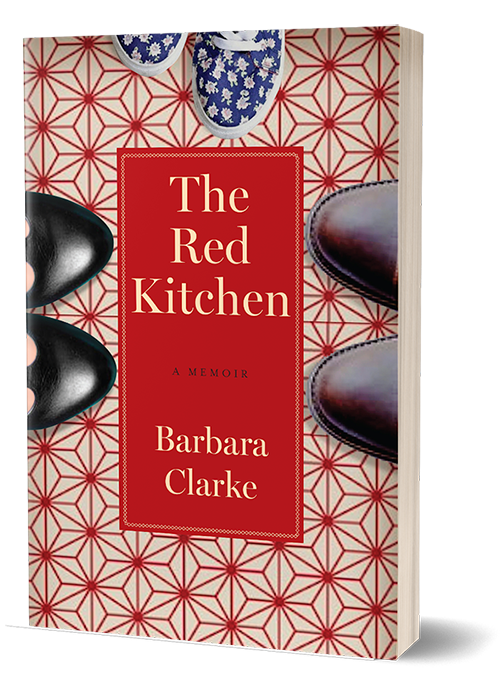 Bellingham, WASHINGTON – It’s never too late to find and mend the broken places within ourselves and in our relationships with others. This is exemplified in Barbara Clarke’s compassionate story exploring the long-term effects of an early betrayal of a child and how that transforms her life. In “The Red Kitchen,” (April 6, 2021, She Writes Press) Clarke shows how to keep a sense of humor in the worst of times — part understanding and part forgiveness — and describes how to work with memory, trust and finding long-term solutions to trauma.
Bellingham, WASHINGTON – It’s never too late to find and mend the broken places within ourselves and in our relationships with others. This is exemplified in Barbara Clarke’s compassionate story exploring the long-term effects of an early betrayal of a child and how that transforms her life. In “The Red Kitchen,” (April 6, 2021, She Writes Press) Clarke shows how to keep a sense of humor in the worst of times — part understanding and part forgiveness — and describes how to work with memory, trust and finding long-term solutions to trauma.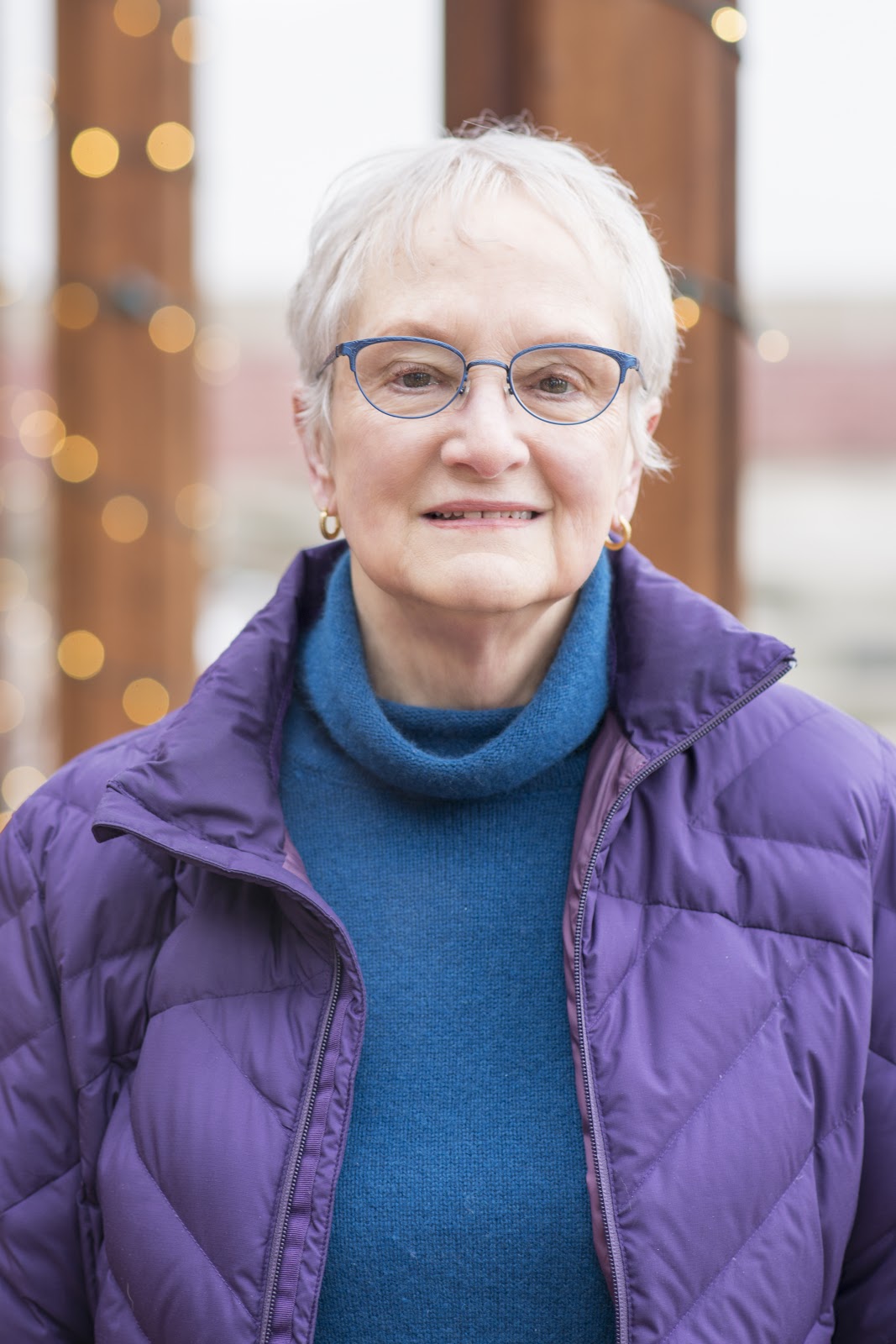 About the Author
About the Author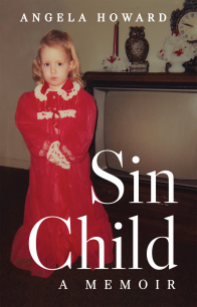 Memphis, TN – Angela Howard recounts how she persevered through her traumatic childhood to come out the other side as a successful nurse, motivational speaker, educator and parent. “Sin Child” (March 31, 2020, Books Fluent) is the personal account of a strong-minded child who endured a daily struggle to find the smallest amount of acceptance and, many times, a place to fall asleep at night. Angela came to accept loss, abuse, and organized crime as a natural part of her life. The innocence and nostalgia of a one-traffic-light town fades too fast for the cotton-top child with a neglectful, angry mother and an absent father.
Memphis, TN – Angela Howard recounts how she persevered through her traumatic childhood to come out the other side as a successful nurse, motivational speaker, educator and parent. “Sin Child” (March 31, 2020, Books Fluent) is the personal account of a strong-minded child who endured a daily struggle to find the smallest amount of acceptance and, many times, a place to fall asleep at night. Angela came to accept loss, abuse, and organized crime as a natural part of her life. The innocence and nostalgia of a one-traffic-light town fades too fast for the cotton-top child with a neglectful, angry mother and an absent father.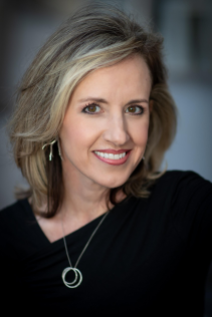 Angela Howard is a first-time author and the founder of PTSD-ACED Foundation, Inc. Angela is a registered nurse and has worked in the medical field for the past 20 years. She holds a Bachelor of Science in Nursing and certifications in Life Care Planning and Medical Case Management.
Angela Howard is a first-time author and the founder of PTSD-ACED Foundation, Inc. Angela is a registered nurse and has worked in the medical field for the past 20 years. She holds a Bachelor of Science in Nursing and certifications in Life Care Planning and Medical Case Management.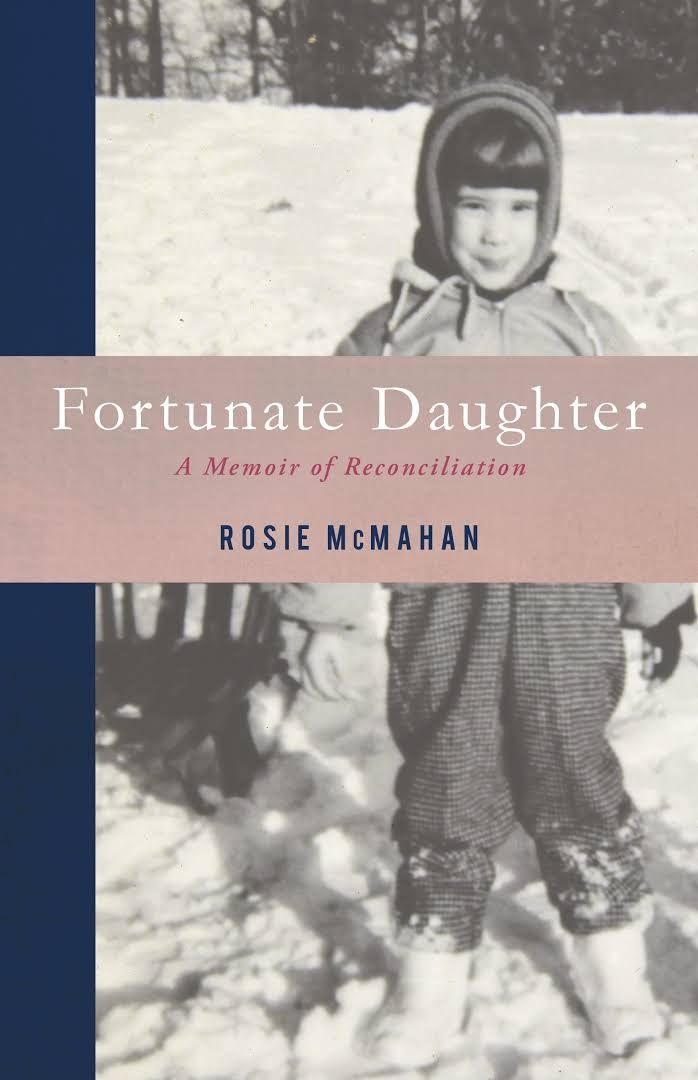 BOSTON, MA – Rosie McMahan recounts her difficult childhood that left her with feelings of shame, guilt, and a need to reconcile for years to come in “Fortunate Daughter” (April 13, 2021, She Writes Press). Rosie takes us through her experience as she and her family attempt to move on from sexual abuse, and the emotional, spiritual and even cultural complexities that come along with forgiving her father, but never being able to forget the past.
BOSTON, MA – Rosie McMahan recounts her difficult childhood that left her with feelings of shame, guilt, and a need to reconcile for years to come in “Fortunate Daughter” (April 13, 2021, She Writes Press). Rosie takes us through her experience as she and her family attempt to move on from sexual abuse, and the emotional, spiritual and even cultural complexities that come along with forgiving her father, but never being able to forget the past.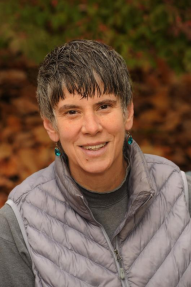 ROSIE MCMAHAN: Rosie McMahan was brought up in Somerville, MA at a time when kids and dogs roamed the streets in unlawful packs, and the walk to a barroom or a Catholic church was less than a quarter of a mile away in any direction. Her and her husband moved to western MA in 2001 to raise their children, now 23 and 18 years old.
ROSIE MCMAHAN: Rosie McMahan was brought up in Somerville, MA at a time when kids and dogs roamed the streets in unlawful packs, and the walk to a barroom or a Catholic church was less than a quarter of a mile away in any direction. Her and her husband moved to western MA in 2001 to raise their children, now 23 and 18 years old. PALM SPRINGS, CA – Marco Carocari’s debut novel, Blackout (Level Best Books, March 30, 2021) has been described by award-nominated author Gabriel Valjan as “Rear Window meets the dating app.” This page-turning book is full of twists that keeps the reader guessing.
PALM SPRINGS, CA – Marco Carocari’s debut novel, Blackout (Level Best Books, March 30, 2021) has been described by award-nominated author Gabriel Valjan as “Rear Window meets the dating app.” This page-turning book is full of twists that keeps the reader guessing.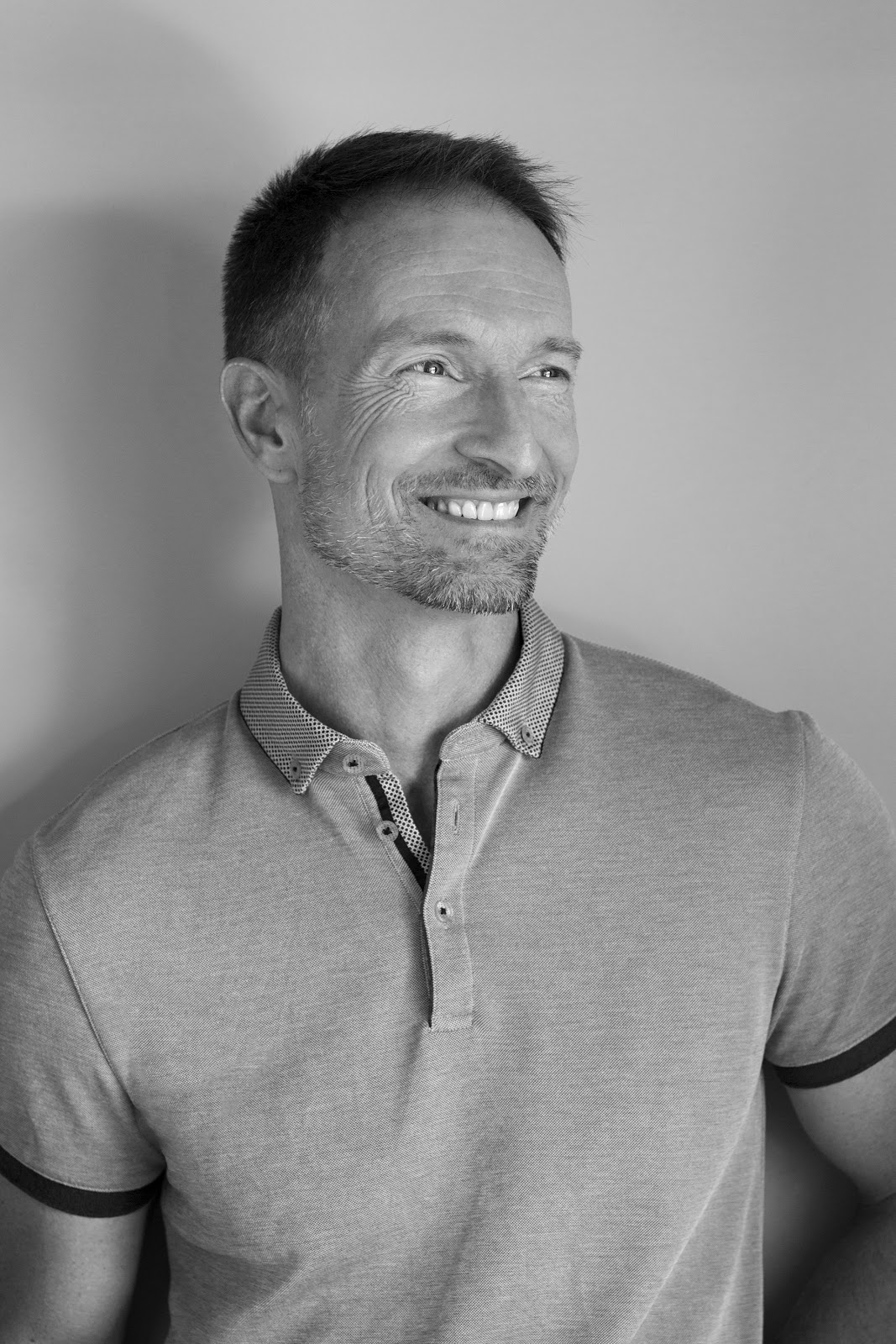 Marco Carocari: Marco Carocari grew up in Switzerland. After seeing Murder, She Said on TV his grandmother gifted him Agatha Christie’s 4:50 From Paddington. Though hugely disappointed that the real Miss Marple bore no resemblance whatsoever to the brilliant and funny Margaret Rutherford, he was hooked, and devoured every crime novel he could get his hands on that his parents didn’t object to (considering he was ten). Over the years, he worked in a hardware store, traveled the globe working for the airlines, and later as an internationally published photographer, and frequently jobbed as a waiter, hotel receptionist, or manager of a professional photo studio. In 2016 he swapped snow-capped mountains, lakes, and lush, green pastures for the charm of the dry California desert, where he lives with his husband. ‘Blackout’ is his first novel.
Marco Carocari: Marco Carocari grew up in Switzerland. After seeing Murder, She Said on TV his grandmother gifted him Agatha Christie’s 4:50 From Paddington. Though hugely disappointed that the real Miss Marple bore no resemblance whatsoever to the brilliant and funny Margaret Rutherford, he was hooked, and devoured every crime novel he could get his hands on that his parents didn’t object to (considering he was ten). Over the years, he worked in a hardware store, traveled the globe working for the airlines, and later as an internationally published photographer, and frequently jobbed as a waiter, hotel receptionist, or manager of a professional photo studio. In 2016 he swapped snow-capped mountains, lakes, and lush, green pastures for the charm of the dry California desert, where he lives with his husband. ‘Blackout’ is his first novel.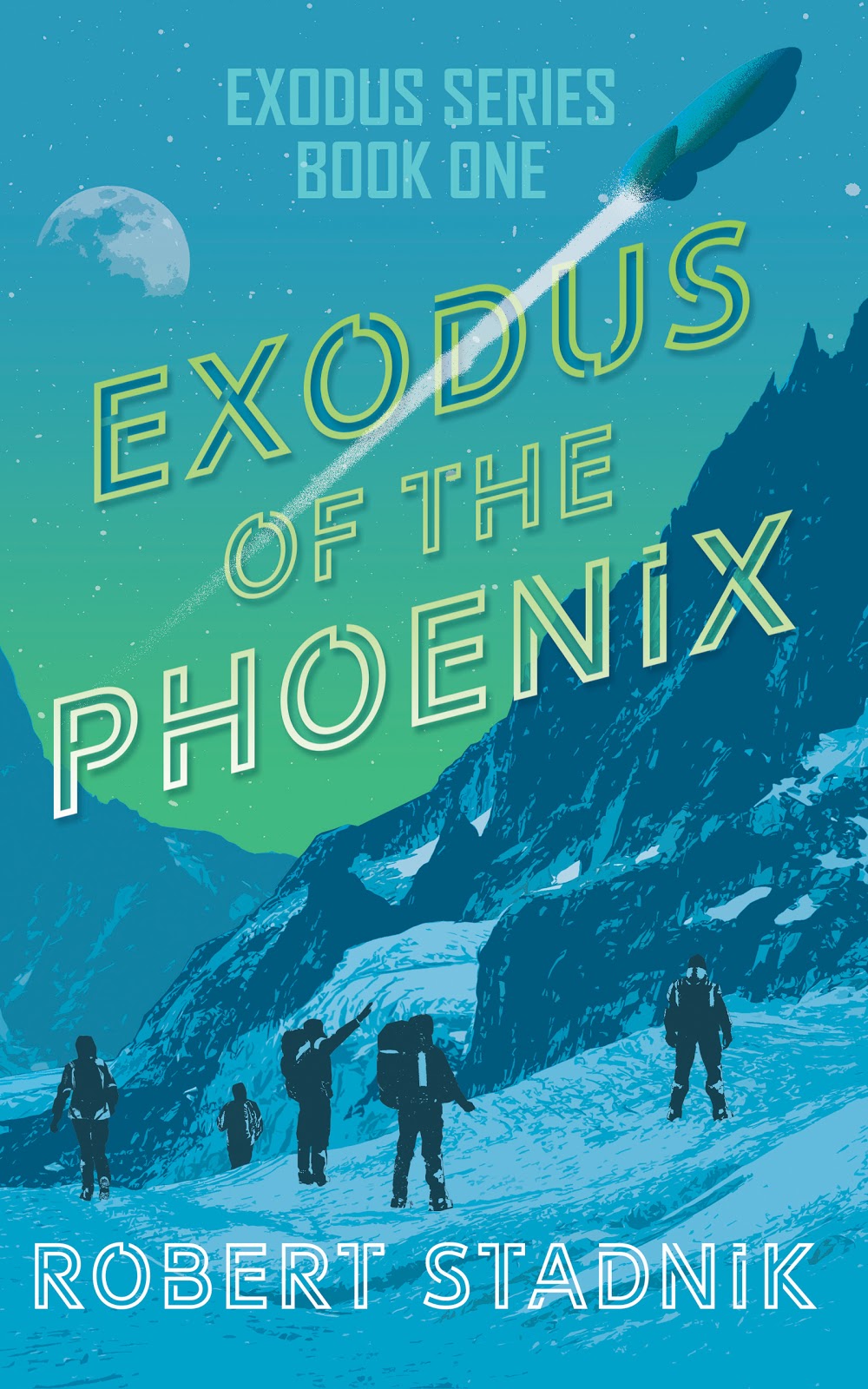 Complementing the launch of “Infinite Retribution,” author Robert Stadnik is also premiering redesigned book covers for the previous books in the Exodus Universe, including:
Complementing the launch of “Infinite Retribution,” author Robert Stadnik is also premiering redesigned book covers for the previous books in the Exodus Universe, including: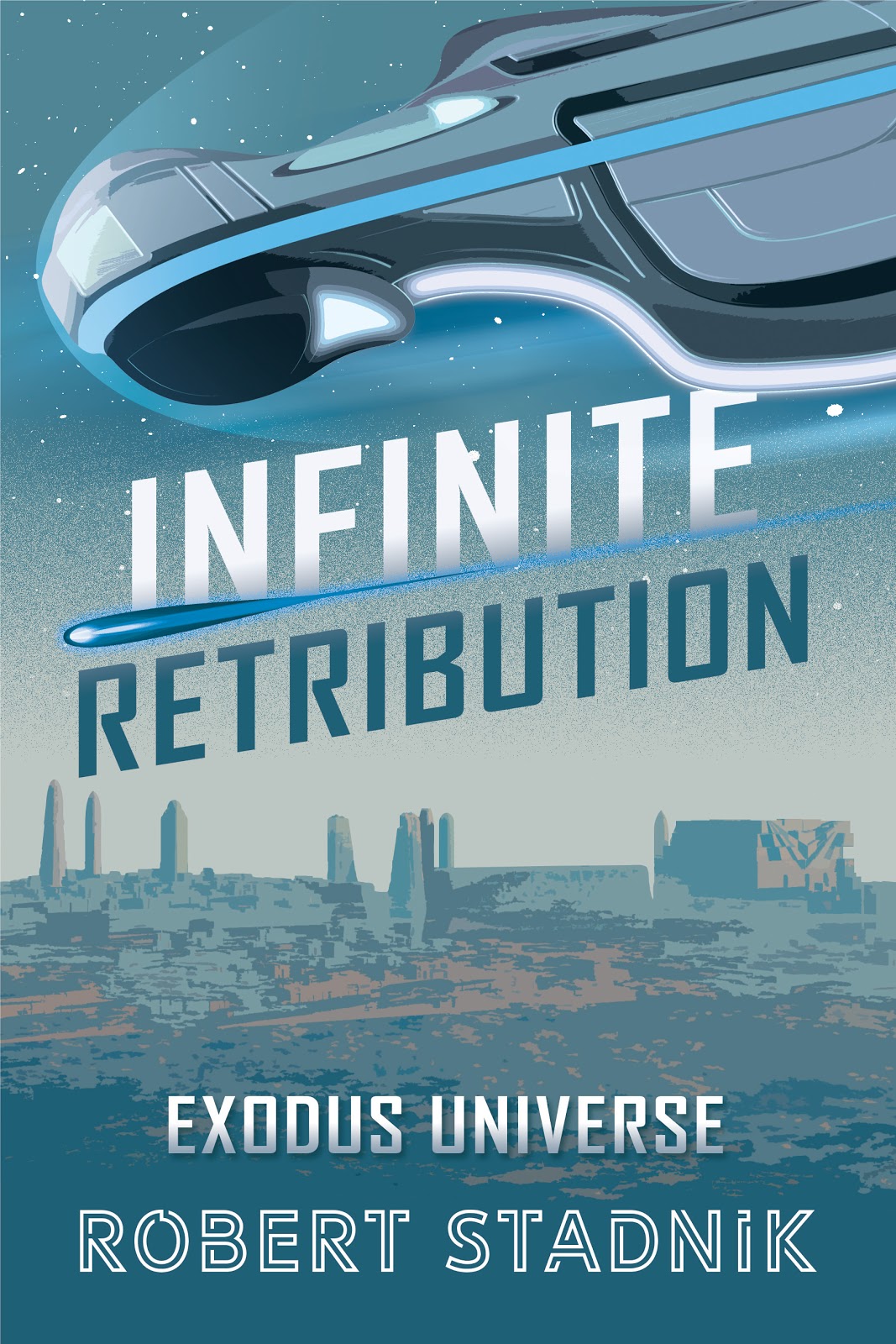 Stadnik invites both dedicated readers and new fans alike to explore the Exodus Universe, where they will meet memorable characters such as Captain Annette Nikols, newly minted Executive Officer Frank Rola, an intergalactic drag queen and more!
Stadnik invites both dedicated readers and new fans alike to explore the Exodus Universe, where they will meet memorable characters such as Captain Annette Nikols, newly minted Executive Officer Frank Rola, an intergalactic drag queen and more!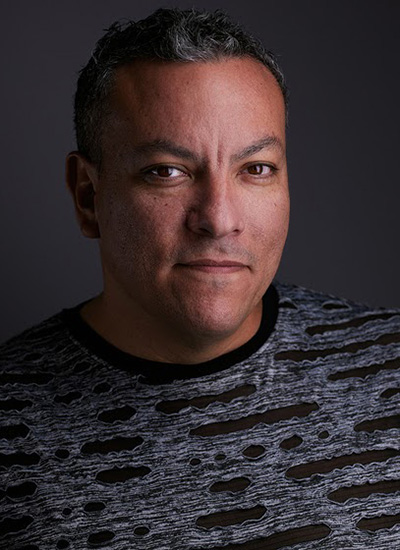 About the Author
About the Author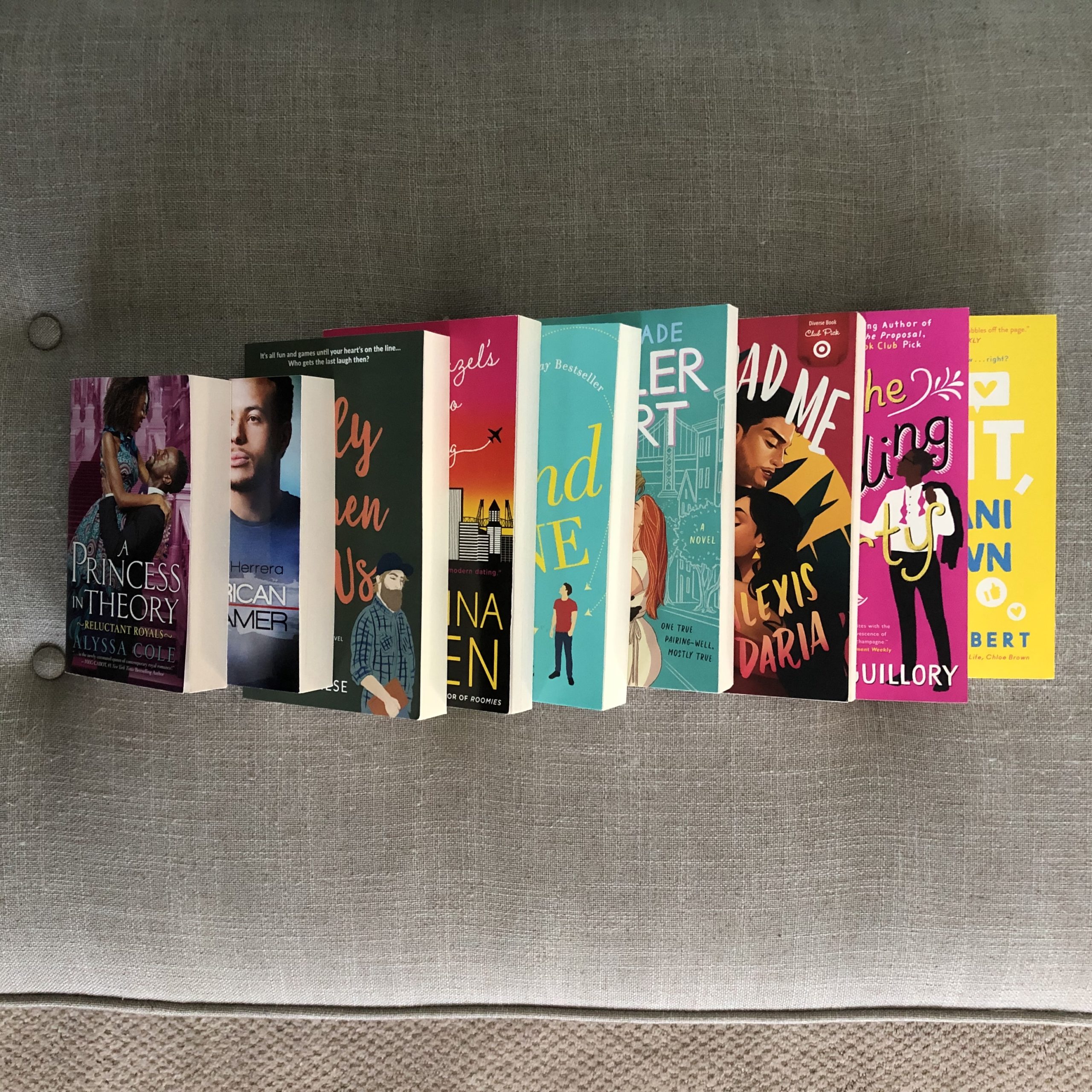
 SALT LAKE CITY, Utah – For Tom Stanley, a slightly overweight lost soul, life has lost its luster. Rather than face the daily grind of life working at his Chevrolet dealership, he’d rather sleep his days away. Just when Tom’s malaise seems like it can’t get any worse, a chance meeting with fellow car dealership owner Daniel Santos changes everything. Tall, tan, and fit, Daniel is renowned for his success and decides to take Tom under his wing. Under Daniel’s guidance, not only does Tom train to run his first marathon but also learns what it takes to turn his business into a success!
SALT LAKE CITY, Utah – For Tom Stanley, a slightly overweight lost soul, life has lost its luster. Rather than face the daily grind of life working at his Chevrolet dealership, he’d rather sleep his days away. Just when Tom’s malaise seems like it can’t get any worse, a chance meeting with fellow car dealership owner Daniel Santos changes everything. Tall, tan, and fit, Daniel is renowned for his success and decides to take Tom under his wing. Under Daniel’s guidance, not only does Tom train to run his first marathon but also learns what it takes to turn his business into a success! Author of “Stop Drifting: Become the Switch Master of Your Own Thought and Pivot to Positive,” David R. Ibarra is a leadership consultant and successful entrepreneur in Salt Lake City who blazed his own trail to success after being raised in the Utah foster care system.
Author of “Stop Drifting: Become the Switch Master of Your Own Thought and Pivot to Positive,” David R. Ibarra is a leadership consultant and successful entrepreneur in Salt Lake City who blazed his own trail to success after being raised in the Utah foster care system.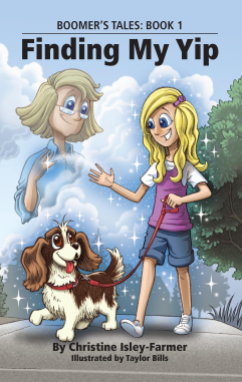 Murfreesboro, TN — Christine Isley-Farmer weaves together a charming tale featuring a Cavalier King Charles Spaniel as the story’s narrator. “Finding My Yip” (March 2, 2021, Wandering in the Words Press) is the first book in her “Boomer’s Tales” series.
Murfreesboro, TN — Christine Isley-Farmer weaves together a charming tale featuring a Cavalier King Charles Spaniel as the story’s narrator. “Finding My Yip” (March 2, 2021, Wandering in the Words Press) is the first book in her “Boomer’s Tales” series.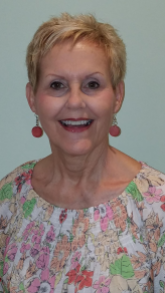 Christine Isley-Farmer, Professor Emerita of Music at Middle Tennessee State University, has had extensive experience in both opera and concert. Her broad performance history includes opera, operetta, musical theatre, oratorio, and concerts in the United States and Europe. Dr. Isley-Farmer earned her bachelor’s and master’s degrees in voice performance from the University of North Carolina at Greensboro, where she taught for 2 years after her return from Europe, and the D.M.A. in voice performance and literature with a minor in German Literature from the University of Illinois at Urbana-Champaign.
Christine Isley-Farmer, Professor Emerita of Music at Middle Tennessee State University, has had extensive experience in both opera and concert. Her broad performance history includes opera, operetta, musical theatre, oratorio, and concerts in the United States and Europe. Dr. Isley-Farmer earned her bachelor’s and master’s degrees in voice performance from the University of North Carolina at Greensboro, where she taught for 2 years after her return from Europe, and the D.M.A. in voice performance and literature with a minor in German Literature from the University of Illinois at Urbana-Champaign.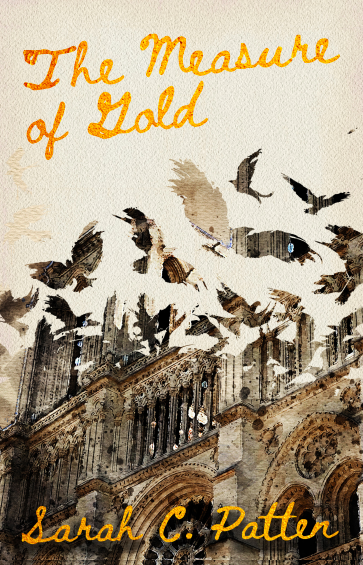 ASHEVILLE, North Carolina –No magic is more powerful than the spell of love. And no enchantment can be more dangerous.
ASHEVILLE, North Carolina –No magic is more powerful than the spell of love. And no enchantment can be more dangerous.

